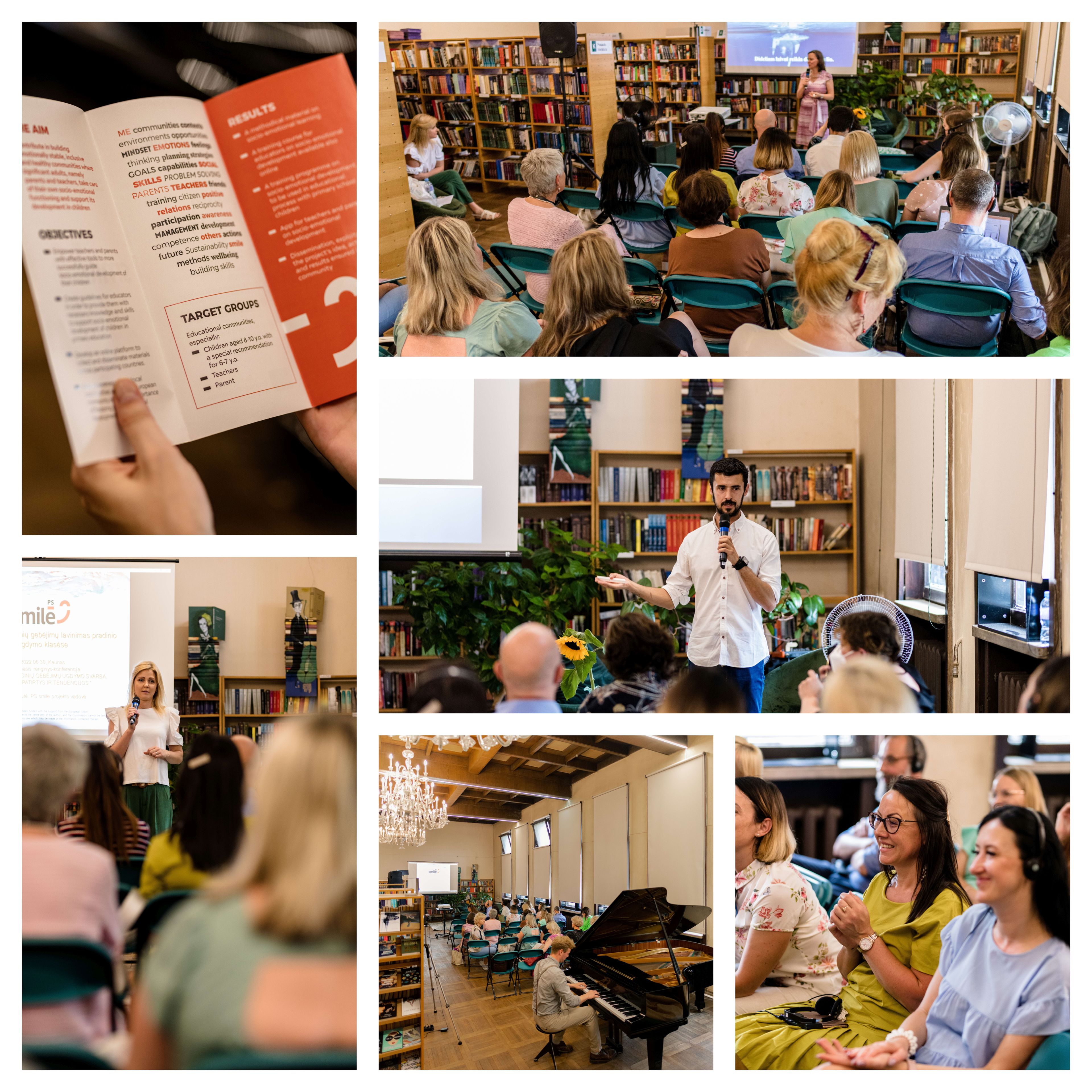
Topic(s) addressed
This project addressed wellbeing at school.
Target group(s)
The target groups included teachers, social educators and psychologists. It also consisted of 1 500 primary school pupils and 2 000 parents.
Methodologies
The project’s approach to teaching and learning was innovative as it fostered a community-based educational model. It expanded the traditional SEL framework by focusing on goal-setting and responsible decision-making, which is aligned with the UN 2030 Agenda. The project employed flexible, inclusive methodologies, including the Universal Design for Learning app, for SEL skills improvement both at home and in school. Resources such as the mobile app for SEL, comprehensive training programmes, and e-learning courses in multiple languages made the materials accessible.
Innovation environment
The project’s learning environment supported innovative teaching and learning by integrating socio-emotional learning into the curriculum, providing comprehensive training programmes and using flexible, inclusive materials. The project employed app and e-learning courses to make resources accessible in multiple languages. It promoted continuous community-based education by involving parents and teachers, which fostered a supportive network for SEL. This holistic approach enhanced engagement, inclusivity, and adaptability in cross-sectoral contexts.
Teachers’ role
Teachers involved in the project influenced innovative teaching processes by integrating SEL into their curricula. The teachers engaged in comprehensive training which enhanced their SE skills, wellbeing, and professional capacities. By using the project's app and e-learning resources, teachers could continuously update their knowledge and practices. Their feedback contributed to refining the project’s approach, ensuring it met diverse classroom needs. Overall, the project aimed to foster a more inclusive and emotionally supportive educational environment.
Impact and output
This project’s innovative and transversal educational practices have significantly impacted SE education in participating schools. By engaging teachers, parents, and pupils, the project improved SEL skills, academic motivation, and overall community wellbeing. The project reached over 300 teachers and 1,500 children. It helped to promote better relationships, reduced bullying, and enhanced emotional awareness. These results demonstrate sustainable benefits across diverse European contexts.
Video
- Reference
- Socio-emotional capacity building in primary education
- Project locations
- Lithuania
- Project category
- Primary education
- Project year
- 2024
Stakeholders
Coordinators
VšĮ "eMundus"
- Address
- Lithuania
Participants
VšĮ Mano šeimos akademija
- Address
- Lithuania
FOUNDATION FOR DEVELOPMENT OF THE CULTURAL BPOCS - CUBU Foundation
- Address
- Bulgaria
University of Padova
- Address
- Italy
ASSOCIACAO PARA A RECUPERACAO DE CIDADAOS INADAPTADOS DA LOUSA (A.R.C.I.L)
- Address
- Portugal
ASTIKI MI KERDOSKOPIKI ETAIREIA FOUR ELEMENTS
- Address
- Greece
